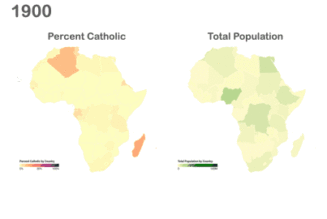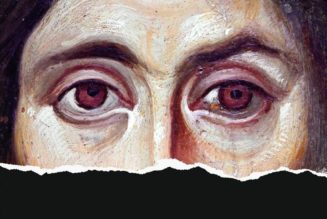Jordan Peterson’s work has not only provoked powerful reactions from defenders of woke orthodoxy, but also reconsiderations by atheists, agnostics, and religious “Nones” about the wisdom of Biblical stories. In our book Jordan Peterson, God, and Christianity: The Search for a Meaningful Life, Matthew Petrusek and I seek to show Peterson’s method of reading Scripture is in some ways found earlier – and in a richer form – in figures like Augustine, Gregory the Great, and Thomas Aquinas. Moreover, we argue that the trajectories of many lines of Peterson’s thought find their completion in Catholicism. “Catholicism is as sane as people can get,” Jordan Peterson said in a recent podcast, and we agree.
Peterson brings insights from Jungian psychology, Russian literature, evolutionary theory, and the totalitarian tragedies of the 20th century to illuminate the Biblical text. This method echoes Augustine who taught in De doctrina christiana that all secular wisdom can be used to interpret Scripture because all truths, wherever they are found, ultimately come from God. For Peterson, unknowingly re-presenting the teaching of St. Gregory the Great, the Old Testament is revealed in the New Testament, the New Testament sheds light on the Old Testament. Like Aquinas, Peterson views the Bible as having a rich depth of meaning that goes far beyond what any single interpreter can fathom.
Within this framework, Peterson offers striking interpretations of Adam and Eve, Cain and Abel, the Tower of Babel, and the call of Abraham. For Peterson, these stories are not simply about ancient figures in a forgotten world, but about human realities that remain as relevant today as they were when first written.
Part of the power of Peterson’s thought is his direct confrontation with the problem of pain, occasioned no doubt by the excruciating suffering that he and his family have endured. In 12 Rules for Life, he writes that, “Truth is the antidote to suffering.” In Beyond Order, he says the antidote to suffering is some good that constitutes, “the highest possible goal.” Elsewhere he writes, “We cannot live without some connection to the divine – and beauty is divine – because in its absence life is too short, too dismal, and too tragic.” We might summarize Peterson by saying that the antidote to suffering is the truth as courageously articulated, the good of the highest goal, and the beautiful as experienced.
In the Catholic tradition, God himself is the true, the good, and the beautiful. Echoing the thought of Diotima in Plato’s Symposium, Augustine teaches that God is “the supreme beauty.” In his Confessions, the African bishop laments, “Late have I loved you, O Beauty ever ancient, ever new, late have I loved you!”

Thomas Aquinas argued that God is the highest possible goal, the summum bonum, the perfect good that is sought by those who seek happiness. Unlike dualistic conceptions of ultimate reality, such as “the force” in Star Wars, which has a light side and a dark side, Thomas argued that God is not composed in any way, so cannot be partly good and partly bad. Thomas reasons that God is the highest good, the perfect good, and a good without any evil whatsoever.
And what about the truth? Aquinas defined the truth as a correspondence of mind and reality. By contrast, Peterson has a pragmatic understanding of truth as “the useful,” inspired by figures like William James. That’s helpful, so far as it goes, but Peterson – at least for the moment – and others in the Jungian tradition pursue the benefits of truth without grounding it in the only place it can be fully grounded.
In the Summa contra Gentiles, Aquinas provided reasons to believe that God’s mind and God’s reality not only correspond to each other but are actually identical. The Divine Mind is God’s Essence, and God’s Essence is the Divine Mind. Moreover, God is the First Truth because God is the First Cause of all physical and psychological realities that we know when we understand the truth. If the antidote to suffering is truth, goodness, and beauty, then God is the antidote to suffering.
The aphorism that “Truth is the antidote to suffering” is connected to the Catholic tradition in yet another way. Jesus said, “I am the way, the truth, and the life. No one comes to the Father except through me” (John 14:6). This way of Jesus is not merely an intellectual grasp of the truth. This reality, explored so ably by Jesuit Fr. David Vincent Meconi in his wonderful new book Christ Alive in Me: Living as a Member of the Mystical Body, is called by different names such as divinization, theosis, and deification. The Christian claim is that we are invited not just to become eager pupils of an insightful teacher, but we are called to be adopted children in the Divine Family of Father, Son, and Holy Spirit.
If there is a partial antidote to suffering in this life, it is found in union with Christ who (according to Aquinas) experienced the greatest possible suffering and who offers the greatest possible consolation. This happens not through just knowing the teaching of Jesus, but in sharing the life of Jesus offered to us as a gift.
But, in fact, there is no perfect antidote to suffering, at least in this life. Here below, there will always be pain both physical and psychological. Indeed, the greatest of the saints, those who lived in Christ most fully, often grievously suffered. But their suffering had a meaning because their lives had a purpose: to love God and to love neighbor. Love is a balm but not a perfect antidote to the inevitable difficulties of life here below. Christ’s suffering found no perfect antidote until he died and rose from the dead, and our suffering won’t either. Whether this resurrection is a merely pious dream or a well-grounded hope is yet another question that arises in Peterson’s provocative explorations.
*Photo: Chris Williamson/Getty Images
You may also enjoy:
Father Bevil Bramwell’s Underrating Jesus Christ
Michael Pakaluk’s Wanted: A New Height of Vision
Join Our Telegram Group : Salvation & Prosperity









